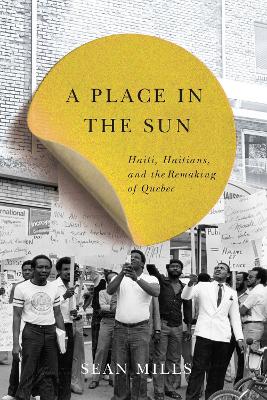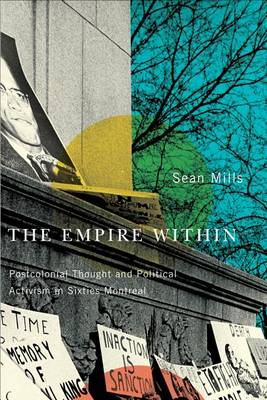Studies on the History of Quebec/Etudes d'histoire du Quebec
2 total works
What is the relationship between migration and politics in Quebec? How did French Canadians' activities in the global south influence future debates about migration and Quebec society? How did migrants, in turn, shape debates about language, class, nationalism and sexuality? A Place in the Sun explores these questions through overlapping histories of Quebec and Haiti. From the 1930s to the 1950s, French-Canadian and Haitian cultural and political elites developed close intellectual bonds and large numbers of French-Canadian missionaries began working in the country. Through these encounters, French-Canadian intellectual and religious figures developed an image of Haiti that would circulate widely throughout Quebec and have ongoing cultural ramifications. After first exploring French-Canadian views of Haiti, Sean Mills reverses the perspective by looking at the many ways that Haitian migrants intervened in and shaped Quebec society. As the most significant group seen to integrate into francophone Quebec, Haitian migrants introduced new perspectives into a changing public sphere during decades of political turbulence.
By turning his attention to the ideas and activities of Haitian taxi drivers, exiled priests, aspiring authors, dissident intellectuals, and feminist activists, Mills reconsiders the historical actors of Quebec intellectual and political life, and challenges the traditional tendency to view migrants as peripheral to Quebec history. Ranging from political economy to discussions about sexuality, A Place in the Sun demonstrates the ways in which Haitian migrants opened new debates, exposed new tensions, and forever altered Quebec society.
By turning his attention to the ideas and activities of Haitian taxi drivers, exiled priests, aspiring authors, dissident intellectuals, and feminist activists, Mills reconsiders the historical actors of Quebec intellectual and political life, and challenges the traditional tendency to view migrants as peripheral to Quebec history. Ranging from political economy to discussions about sexuality, A Place in the Sun demonstrates the ways in which Haitian migrants opened new debates, exposed new tensions, and forever altered Quebec society.
In a brilliant history of a turbulent time and place, Mills pulls back the curtain on the decade's activists and intellectuals, showing their engagement both with each other and with people from around the world. He demonstrates how activists of different backgrounds and with different political aims drew on ideas of decolonization to rethink the meanings attached to the politics of sex, race, and class and to imagine themselves as part of a broad transnational movement of anti-colonial and anti-imperialist resistance. The temporary unity forged around ideas of decolonization came undone in the 1970s, however, as many were forced to come to terms with the contradictions and ambiguities of applying ideas of decolonization in Quebec. From linguistic debates to labour unions, and from the political activities of citizens in the city's poorest neighbourhoods to its Caribbean intellectuals, The Empire Within is a political tour of Montreal that reconsiders the meaning and legacy of the city's dissident traditions. It is also a fascinating chapter in the history of postcolonial thought.

